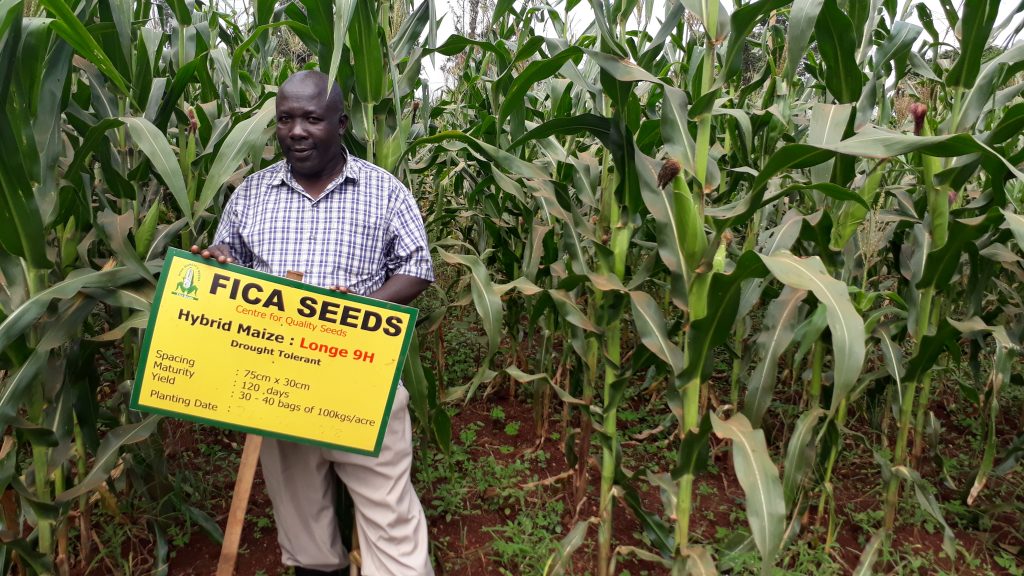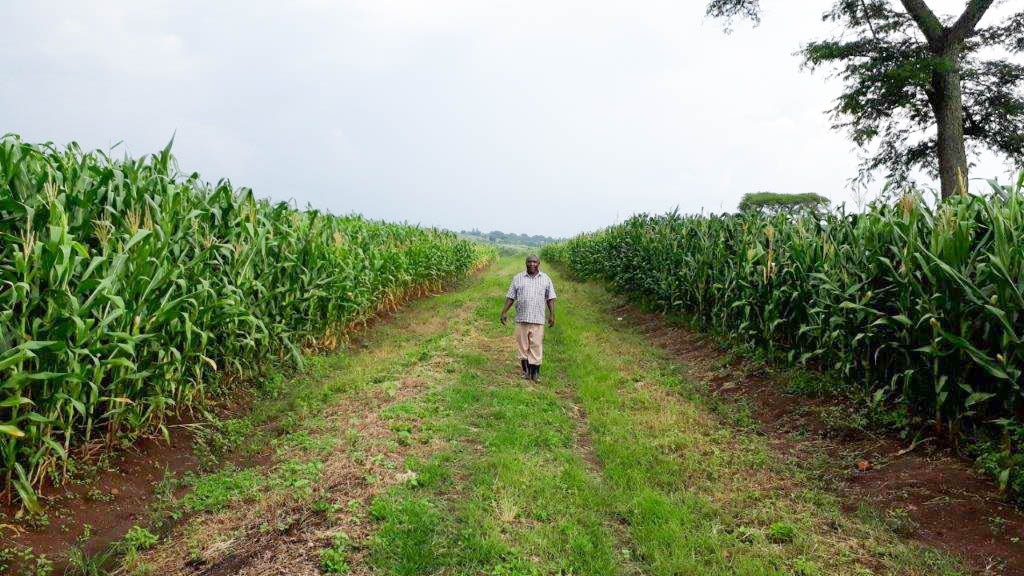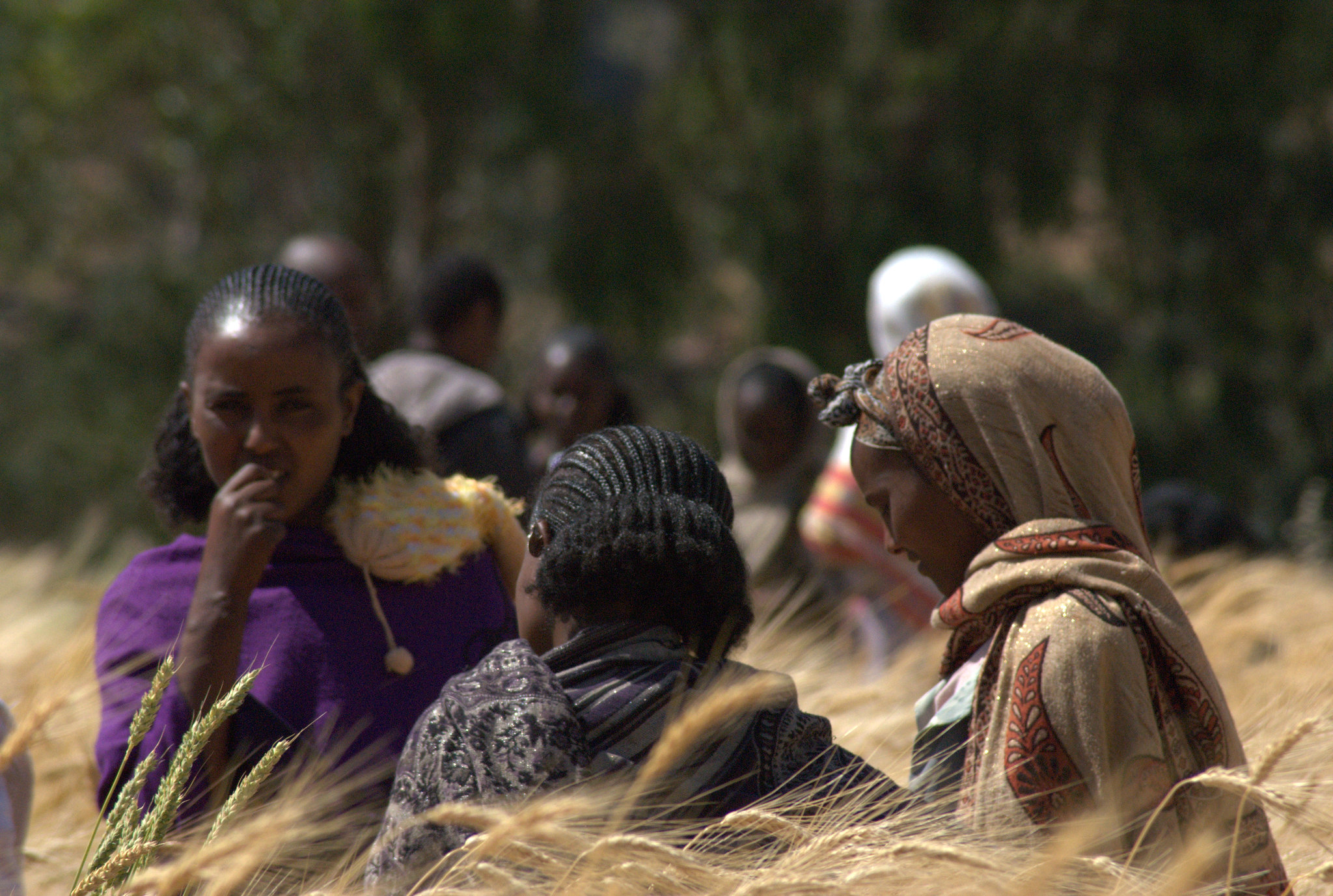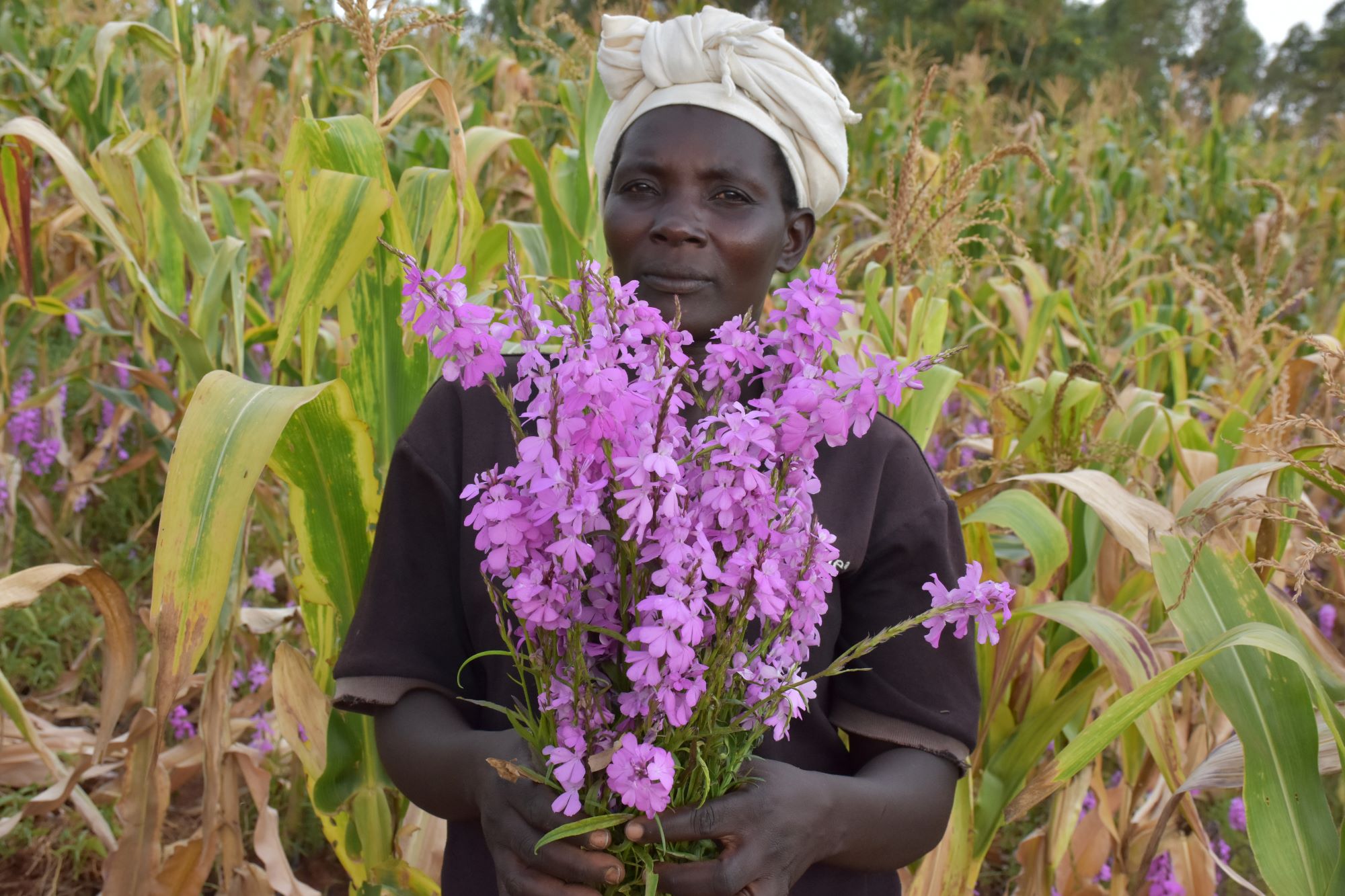As one of the pioneer homegrown seed companies in Uganda, Farm Inputs Care Centre (FICA) has become one of the leading players in the seed sector value chain. Since its inception in 1999, it has played a significant role in variety development and maintenance, seed production, and processing, packaging and marketing.
The close linkages it has maintained with partners such as National Agriculture Research Organization (NARO)’s National Crops Resources Research Institute (NaCCRI) and the International Maize and Wheat Improvement Center (CIMMYT) have seen it acquire new hybrids for commercialization and production of early generation seed.

A unique opportunity for collaboration
Recurrent plant threats such as drought, pests and diseases — alongside the perpetual need to develop and foster better performing varieties in changing climatic conditions — has required partners to intensify efforts to tackle these challenges to bolster smallholders’ resilience. The Drought Tolerant Maize for Africa (DTMA) project, for instance, ushered in the partnership between CIMMYT, FICA, national agriculture research systems, and other partners to develop and scale up well-adapted, drought-tolerant maize varieties among farmers in Uganda and elsewhere in sub-Saharan Africa.
“One of the unique features of the collaboration is that besides CIMMYT, there was a multi-stakeholder platform that would convene key seed sector players to discuss issues affecting the industry. Ultimately, this benefitted the farmers,” says FICA’s Chief Executive Officer Narcis Tumushabe.
This partnership continued during the Stress Tolerant Maize for Africa (STMA) initiative — which ran from 2016 to2020 — and now, in the Accelerating Genetic Gains in Maize and Wheat (AGG) project, which launched in July 2020 with the ambition of fast-tracking the development of climate-resilient, higher-yielding, demand-driven, gender-responsive and nutritious maize and wheat varieties.
Tumushabe is happy that the hybrids delivered in the DTMA and STMA projects proved worthwhile against multiple stresses in farmers’ fields, offering reliable yields even in challenging conditions like drought or other stresses. Because of the diverse ecological zones in Uganda, it was essential to test the hybrids FICA accessed through the CIMMYT-NARO partnership across different ecological zones, ahead of commercialization. This has given farmers opportunities to choose the varieties that are suitable in their environment. The five varieties FICA chose to promote include Longe 9H — which produces about 700 metric tons annually — and WE 2114, WE 2115, WE 3106 and UH 5355, which cumulatively produce about 1,300 tons annually.
The WE 3106 variety has a strong stem and produces big cobs and Tumushabe notes that some livestock farmers prefer this variety as a good forage source for their livestock. Large-scale commercial farmers prefer WE 2114 due to the positioning of the ears at a uniform height, which makes it easy for harvesting using combine harvesters.
Additionally, FICA breeders have also developed impactful combination hybrids using CIMMYT and FICA lines and the company looks to double its annual production of certified stress-tolerant maize seed to 4,000 metric tons in the next five years. Currently, it enlists about 800 contract seed growers to support its seed multiplication efforts.

Surmounting monumental challenges for varietal turnover
Promoting new seed varieties, especially in a highly competitive market, is no mean task. With the seed delivery systems in sub-Saharan Africa mainly driven by the supply side, seed companies end up multiplying only the popular varieties that are already in high demand, explains Mosisa Worku Regasa, a seed systems specialist at CIMMYT.
“Consequently, these companies become reluctant to multiply new seed varieties due to deficient demand, thereby slowing down the rate of varietal turnover,” says Mosisa. “There is, however, a growing push for a demand-driven system.”
“Some avenues for cultivating a demand-led environment include investing a great deal of resources to better understand farmers’ preferences or product profiles, setting up numerous demonstration plots for newer, better-performing varieties closer to the farmers locations in addition to investing in other marketing and promotional activities.”
Still, the seed sector must confront other dynamics such as farmers that are captive of old albeit popular varieties.
“There are cases where, depending on the stage of a seed company’s development, the number of products that one can deliver in the right quality and appropriate maintenance level has to be limited or realistically managed,” Tumushabe explains.
“The seed company also ought to be sure that the new variety will be superior to existing varieties under farmers’ conditions. That is why one may find little excitement if the genetic gain of a new crop variety is not significantly high compared to the already known and available crop variety. This may make one wonder why an old variety continues to persist in the market.”
To create awareness and sustain the demand for its seed, FICA has established demonstration farms to showcase the performance of its stress-resilient maize varieties among farmers and engaged agro-dealers as last mile seed merchants. It is also during field days held at demonstration farms where the company obtains feedback on how to improve its breeding program, particularly from women smallholder farmers. Such efforts have helped raise the company’s share of stress-tolerant maize seed production to 70% of the total maize seed it produces, which indicates good progress in variety replacement.

 Climate adaptation and mitigation
Climate adaptation and mitigation 